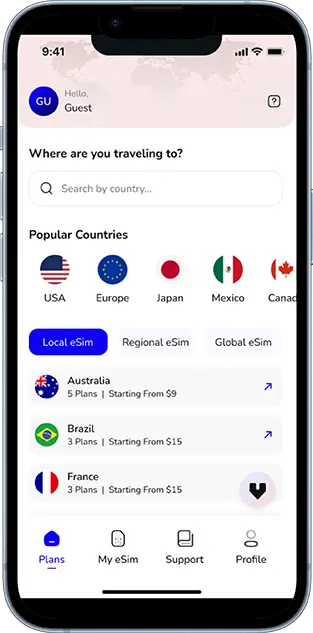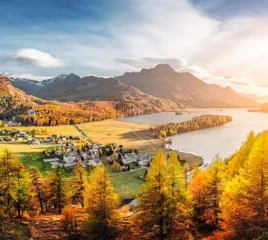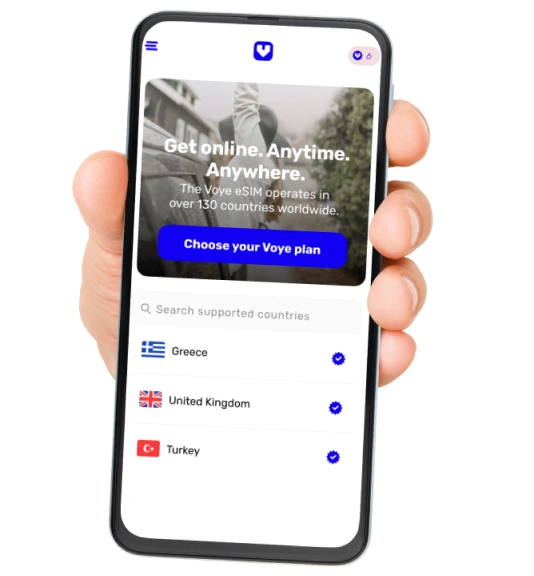Note that iPhone devices from Mainland China aren’t eSIM compatible. Also iPhone devices from Hong Kong and Macao aren’t compatible (except for iPhone 13 Mini, iPhone 12 Mini, iPhone SE 2020 and iPhone XS)
Nestled between the mighty Himalayas and the lush plains of South Asia, Nepal is more than just a dream destination for adventurers—it’s a deeply spiritual and culturally rich country where ancient traditions still guide everyday life. For those embracing solo travel in Nepal, this makes the journey not only exciting but deeply transformative.
But beyond the snow-capped peaks and fluttering prayer flags lies something even more powerful—etiquette. Understanding how to interact respectfully can open doors to genuine connections, unexpected kindness, and unforgettable moments.
If you’re heading to Nepal on your own, this guide is your cultural compass. It’s not just about what to do, but how to truly be while you’re there.
The Meaning Behind Namaste: More Than a Greeting
In Nepal, saying “Namaste” isn’t just about being polite—it’s about recognizing the soul in another person. Pressing your palms together at chest level with a gentle bow shows humility and respect, and it’s often received with a smile.
For those on solo travel in Nepal, this gesture is your silent bridge into Nepalese hearts. It’s respectful, it’s spiritual, and it’s a sign that you’re open to understanding, not just observing.
Cultural Insight: In more conservative areas, especially when meeting women, it’s best to avoid handshakes. Stick to “Namaste” and let your body language express kindness.
Removing Shoes: A Sign of Respect and Cleanliness
Before entering homes, temples, and sometimes even small shops, it’s customary to remove your shoes. For someone experiencing solo travel in Nepal, these quiet customs are what truly immerse you in local life.
Respecting this tradition shows that you’re honoring the sacredness of the space.
Traveler Tip: Carry a clean pair of socks if you’re uncomfortable being barefoot. Also, avoid pointing your feet toward people or religious statues—feet are considered the lowest, most impure part of the body in Nepalese culture.
Eating with the Right Hand: A Ritual of Connection
Meals in Nepal are moments of togetherness, and often eaten without cutlery. If you’re sharing a meal with locals or dining in a traditional home during your solo travel in Nepal, you’ll notice everyone uses their right hand to eat.
Using your left hand is considered unclean, so whether you’re eating, passing food, or accepting an item—always use your right hand.
Table Etiquette to Keep in Mind:
- Don’t touch another person’s food or plate.
- Never share drinking vessels unless you’re offered one explicitly.
- Wash your hands thoroughly before and after meals—most restaurants and homes will have a wash area.
These small rituals may feel different at first, but they help you connect more deeply with the culture.
Stay Connected in Nepal
Explore remote Nepal with seamless, reliable eSIM coverage.
Visiting Temples and Monasteries: A Sacred Space Deserves Sacred Behavior
From the buzzing Pashupatinath in Kathmandu to peaceful hilltop monasteries in Pokhara, Nepal’s religious sites are not tourist attractions—they’re places of living faith.
When you’re on solo travel in Nepal, these sacred spaces offer not only spiritual insight but also peace and reflection. Respecting temple customs shows humility and cultural awareness.
What You Should Do:
- Dress modestly—cover your shoulders, chest, and legs.
- Always walk clockwise around stupas and shrines.
- Remove your hat and shoes before entering temple interiors.
- Keep your voice low and your phone tucked away.
What You Should Never Do:
- Don’t touch sacred statues or offerings.
- Avoid pointing your feet toward altars.
- Never take photos without permission, especially inside active temples.
Speak Kindly, Speak Softly: The Art of Politeness in Conversation
In Nepal, communication is built on gentleness and respect. Raising your voice, speaking aggressively, or being overly direct can come across as rude—even if you’re frustrated.
During solo travel in Nepal, a soft-spoken approach, combined with a smile and a few Nepali phrases, will go a long way.
Essential Phrases for Solo Travelers:
- Namaste – Hello
- Dhanyabad – Thank you
- Maaph garnuhos – Excuse me / I’m sorry
Even if you stumble, locals appreciate your effort and will usually respond warmly.
Blending into Village Life: Respect in Rural Nepal
If your solo travel in Nepal takes you into the countryside, you’ll find a slower pace of life and a deep sense of tradition. Hospitality is generous, but it’s essential to respect the rhythms and customs of these communities.
Key Etiquette in Villages:
- Always ask before entering someone’s home or courtyard.
- Dress conservatively, especially in homestays or during festivals.
- If offered food or drink—accept it with both hands and gratitude.
- Observe before acting—watch how locals greet, eat, and move through daily rituals.
Rural Nepal offers authentic human connection—something that’s often the highlight of solo journeys.
Understanding Boundaries: Avoiding Common Cultural Mistakes
Every culture has invisible lines. Crossing them unintentionally can cause discomfort. Here’s what to avoid during your solo travel in Nepal:
- Don’t touch anyone’s head—it’s considered sacred.
- Avoid public displays of affection.
- Don’t criticize local religion or customs.
- Don’t step over someone’s body or belongings.
Be observant and let respect guide your actions—this is how you’ll earn trust and be welcomed with open arms.
Staying Connected Without Disconnecting from the Experience
When you’re traveling alone, staying connected matters—for safety, maps, translations, and staying in touch with loved ones. But swapping SIM cards and dealing with roaming fees can be frustrating.
If you’re planning to visit Nepal as an international traveler, you can choose the reliable and affordable eSIM Nepal from Voye Global.
Stay connected across mountains, cities, and villages—without the hassle of physical SIMs.
It’s the smart companion for anyone navigating the rewarding path of solo travel in Nepal.
Final Thought: Presence Is the Ultimate Respect
Solo travel in Nepal is more than a bucket list adventure—it’s a soul-deep experience that humbles and transforms you. Every prayer flag, every shared smile, and every cultural interaction leaves an imprint if you choose to be fully present.
So come, curious. Come kind. And let Nepal not just be a place you visit, but a culture you honor—one respectful gesture at a time.
Reliable Data in Nepal
Stay online for maps, calls, and travel updates.
Seamless Mobile Data Everywhere
















